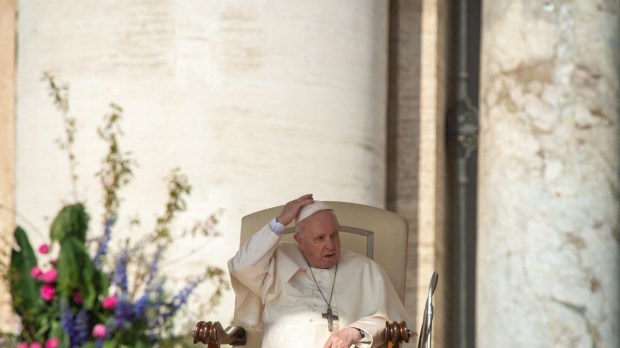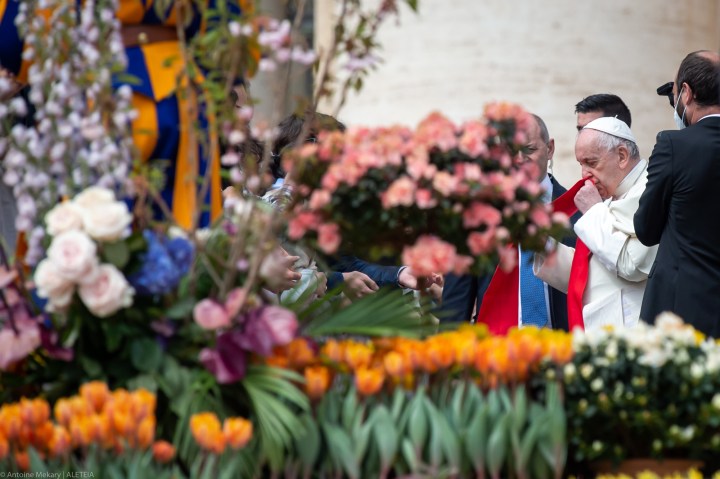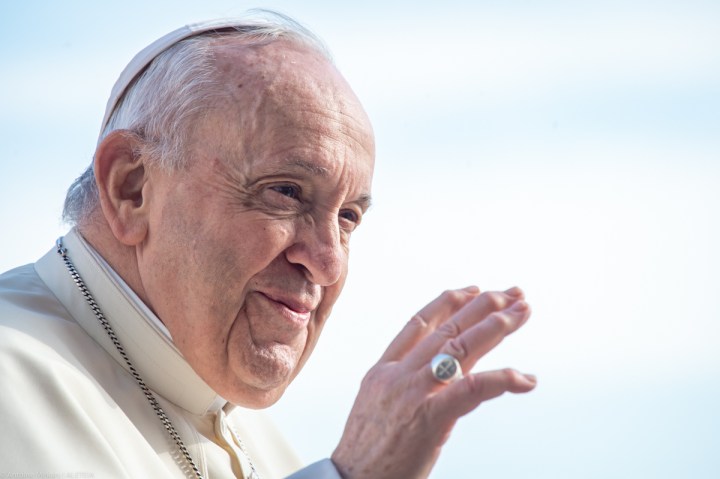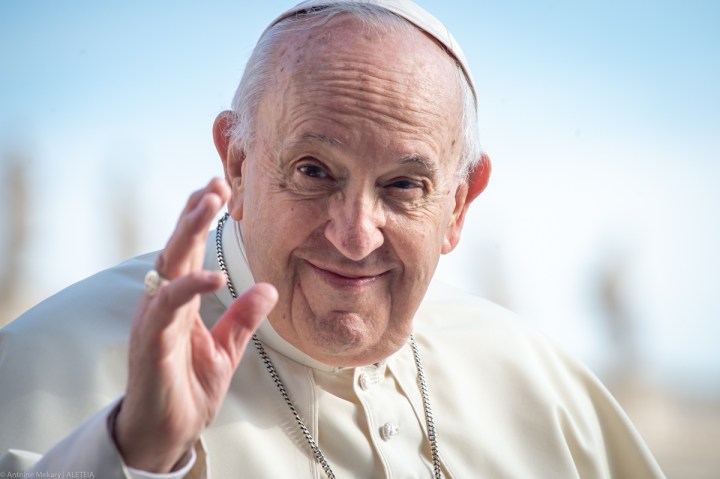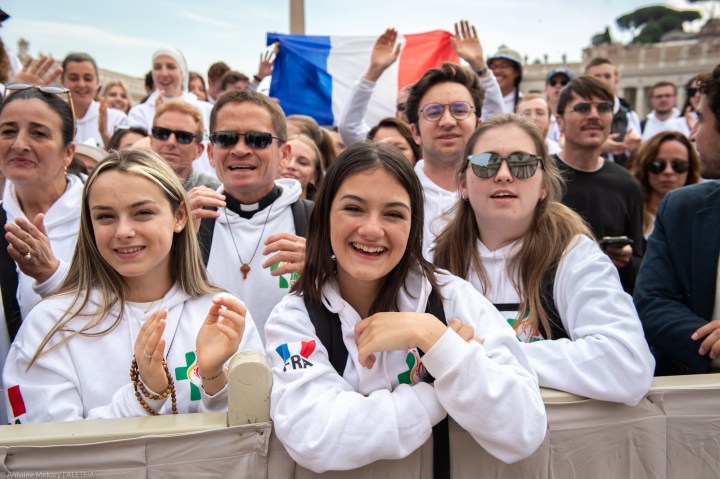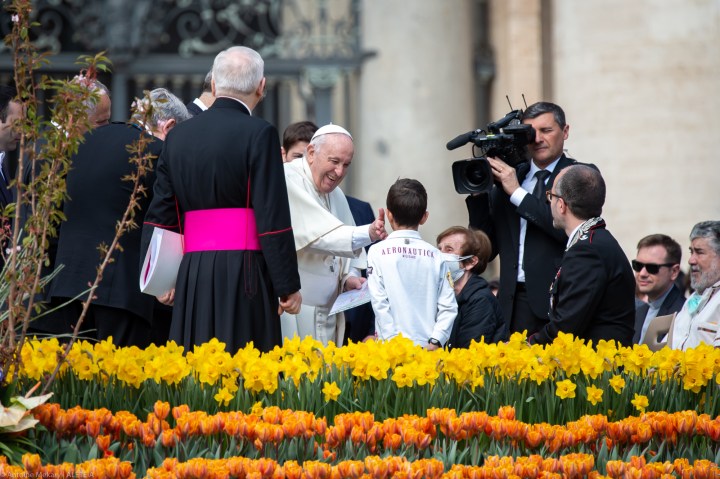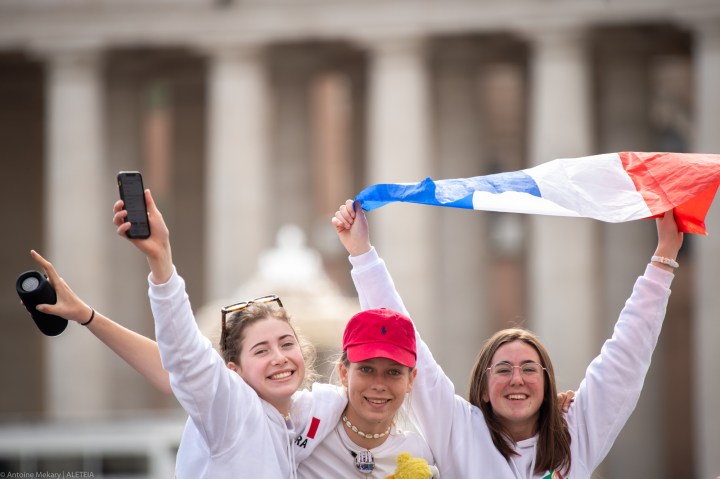After two long years of pandemic restrictions, the general audience of April 20 returned to a St. Peter’s Square full of color and fragrance thanks to the hundreds of thousands of Easter flowers donated by the Netherlands.
But while the Pope was clearly glad to be among the faithful again, his message as he continued his audience series on the elderly was a somber one: “We often think that the old are refuse, or we put them in the trash; … ‘Refuse’ is the word, isn’t it? To despise the elderly and cast them from life, to put them aside, to put them down.”
The Pope noted how the Commandment to honor our father and mother is the first of the “2nd tablet,” of the Commandments, that is, those that deal with how we treat our neighbor.
Honor is a “special love” that involves “tenderness and respect at the same time,” the Pope explained.
Honor is lacking when an excess of confidence, instead of being expressed as delicacy and affection, tenderness and respect, is transformed into roughness and abuse. This occurs when weakness is reproached, and even punished, as if it were a fault, and when bewilderment and confusion become an opening for derision and aggression. It can happen even in the home, in nursing homes, as well as in offices or in the open spaces of the city. Encouraging in young people, even indirectly, an attitude of condescension – and even contempt – for the elderly, for their weaknesses and their precariousness, produces horrible things.
The Holy Father made reference to a sad case reported in the news of young people who had burned a homeless person’s blanket.
They [the young people] see him as a human reject, and we often think that the old are refuse, or we put them in the trash; these young people who have set fire to a bum’s blanket are the tip of the iceberg, that is, of the contempt for a life that, far from the attractions and impulses of youth, already seems to be a life to be cast aside.
The Pope observed:
“This contempt, which dishonors the elderly, actually dishonors all of us. If I dishonour the elderly, I dishonor myself.”
The Holy Father then pleaded with parents:
And on this point, allow me to offer some advice to parents: please, bring your children, young children, closer to the elderly, always bring them closer. And when the elderly person is ill, a bit out of their mind, always approach them: let them know that this is our flesh, that this is what has made it possible for us to be here. Please don’t push the elderly away. And if there is no other option than to send them to a nursing home, please visit them and bring the children to see them: they are the honour of our civilization, the old people who opened the doors. And many times, the children forget this.
He then concluded with a personal story from his time in Argentina, warning that neglect for our elderly is a grave sin:
I’ll tell you something personal: I used to love visiting nursing homes in Buenos Aires. I went often. I went often, I visited each one… And I remember once I asked a lady: ‘And how many children do you have?’ – ‘I have four, all married, with grandchildren …,’ and she started talking to me about the family. ‘And do they come [to visit]?’ – ‘Yes, [she said,] ‘they always come!’ When I left the room, the nurse, who had heard, said to me: ‘Father, she told a lie to cover up for her children. Nobody has come for six months!’
This is discarding the old, it is thinking that the old are refuse. Please: it is a grave sin. This is the first great commandment, and the only one that says the reward: ‘Honour your father and your mother, and you will have long life on earth.’
This commandment to honour the elderly gives us a blessing, which is expressed in this way: ‘You will have long life.’ Please cherish the elderly. And [even] if their mind goes, cherish the old. Because they are the presence of history, the presence of my family, and thanks to them I am here, we can all say: thanks to you, grandfather and grandmother, I am alive. Please don’t leave them alone. And this, looking after the elderly, is not a question of cosmetics and plastic surgery, no. Rather, it is a question of honour, which must transform how we educate the young about life and its stages. Love for the human person that is common to us, including honouring a life lived, is not a matter for the old. Rather it is an ambition that will bring radiance to the youth who inherit its best qualities. May the wisdom of God’s Spirit grant us to open the horizon of this true cultural revolution with the necessary energy.
